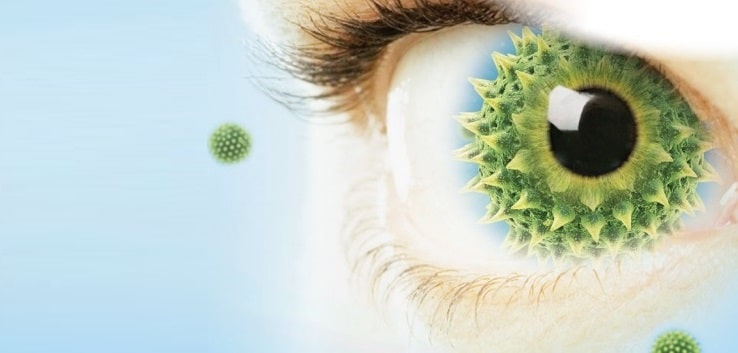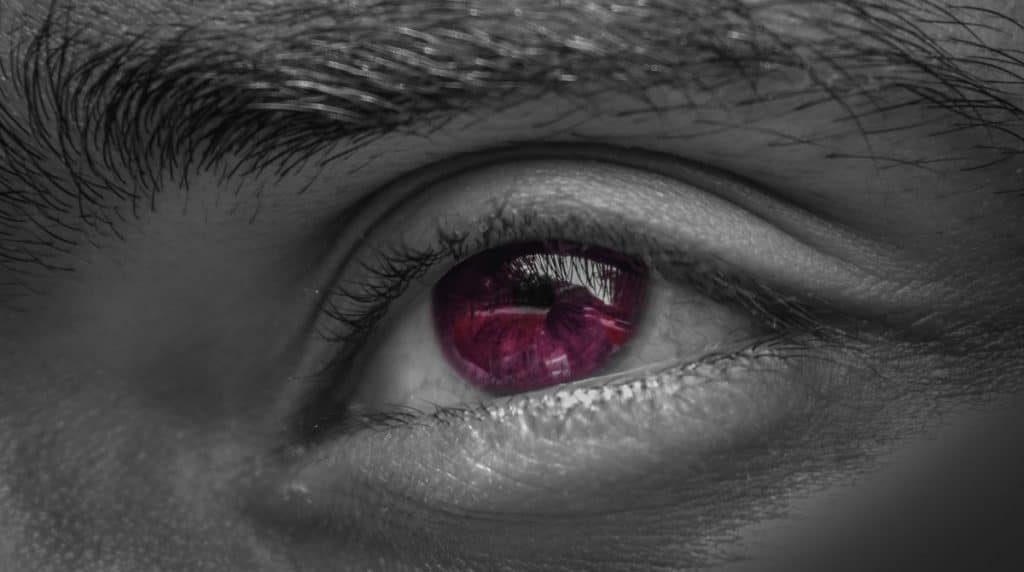Ocular Allergies

YOU MAY BE SUFFERING FROM ALLERGIC CONJUNCTIVITIS IF YOU HAVE:

Symptoms usually affect both eyes.2
Wearing contact lenses could worsen symptoms, and they may not fit as they normally would when eyes are swollen.3
Many people also have a runny, stuffy and congested nose.1
WHAT ARE THE MOST COMMON ALLERGENS?
The main causes of eye allergies are:
- Pollen1
- Household dust4 and dust mites1
- Animal hair4
- Food allergies can also trigger allergic conjunctivitis symptoms5
The allergens responsible for the allergic reaction must be identified and measures taken to prevent exposure to these substances.6
RECOMMENDATIONS AND PREVENTATIVE MEASURES
Whether at home or outdoors, there are many substances capable of triggering eye allergies, such as grass or tree pollens, mold, or cigarette smoke.1
The best way to reduce discomfort and prevent allergic reactions is to avoid trigger allergens as much as possible1,3
USEFUL TIPS TO AVOID EXPOSURE TO DUST, DUST MITE AND ANIMAL ALLERGENS:
- Avoid having curtains, rugs, carpets, and furniture that tend to act as dust traps in your bedroom8
- Use allergen-proof pillows and mattress covers, and washable cotton or synthetic blankets9
- Avoid feather bedding9
- Change air conditioning filters once a month10
- Clean regularly with a damp cloth or vacuum cleaner.10
- If you have to do housework, wear a face mask10
- Wash bed linen weekly in hot water (at least 54° C)10
- Keep your wool clothes in plastic zipper bags when they are not being used9
- If you have pets, do not allow them into your bedroom, and bath them every week to remove hair and other allergens10

USEFUL TIPS TO AVOID EXPOSURE TO POLLEN ALLERGENS:
Pollen is a very fine powder produced by trees, flowers and grasses to fertilize plants.11
- Check the pollen count on the weather forecast before leaving home7
- If possible stay indoors and limit your outdoor activities when the pollen count is high, or consider wearing a face mask7,13
- Take a shower and wash your hair at night to remove any pollen built up during the day12
- Avoid mowing the lawn as this stirs up pollen12
- Wear sunglasses to help keep pollen out of your eyes, as well as to protect your eyes from sun exposure13,14
- A wide brim hat may help reduce the amount of allergens blowing into your eyes12
- Keep your car windows closed when traveling15

DO YOU KNOW YOUR OCULAR ALLERGY TRIGGERS?
Allergies are caused when the body’s immune system reacts to an allergen6
When an allergen comes into contact with the eyes, mast cells in the eye release histamine and other substances to fight off the allergen 6
This reaction causes your eyes to become red, itchy and watery6

Sometimes eyes can react to other allergens that don’t necessarily come into direct contact with the eye, such as:6
- certain foods
- insect bites or stings
Eye allergies could also be hereditary6
MEDICATIONS THAT CAN HELP CONTROL OCULAR ALLERGY SYMPTOMS?
Some medications are available over the counter, while others require a prescription. Discuss your symptoms with your doctor or pharmacist to find which option is best for you7
Mast cell stabiliser eye drops
These prevent the release of histamine and other substances that cause allergy symptoms1
Antihistamine eye drops
These reduce the itching, redness and swelling associated with eye allergies1
Mast cell stabiliser and antihistamine eye drops
The combined action of these drops treat and prevent eye allergies, providing quick, long-lasting relief of itching, redness, tearing and burning1
NSAID (Nonsteroidal anti-inflammatory drugs) eye drops
These drops relieve itching, and may cause stinging when applied1
Corticosteroid eye drops
These help treat chronic eye allergy symptoms. Treatment for more than 2 weeks should be done under the supervision of an ophthalmologist due to possible side effects1
If you experience any of these eye allergy symptoms, visit your optometrist, ophthalmologist, family doctor or pharmacist for treatment recommendations
Although there is no cure for allergies, there are many medications that can help control allergy symptoms.7

For more information please visit: https://www.keepeyesinsight.co.za/
Related Brochures

hay-fever

blocked-nose
